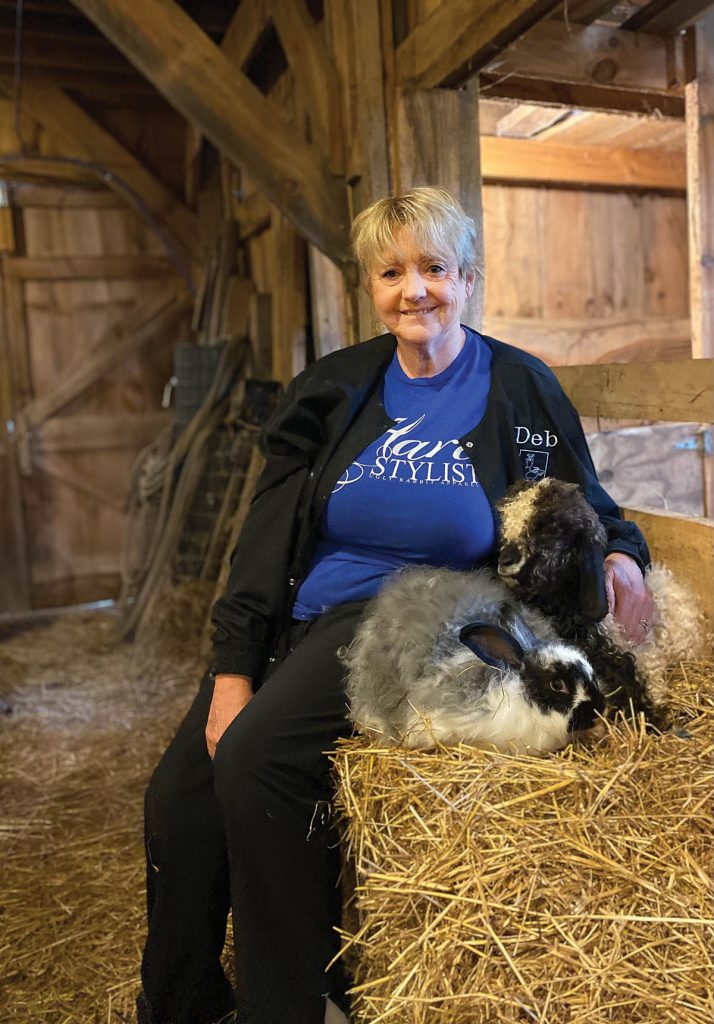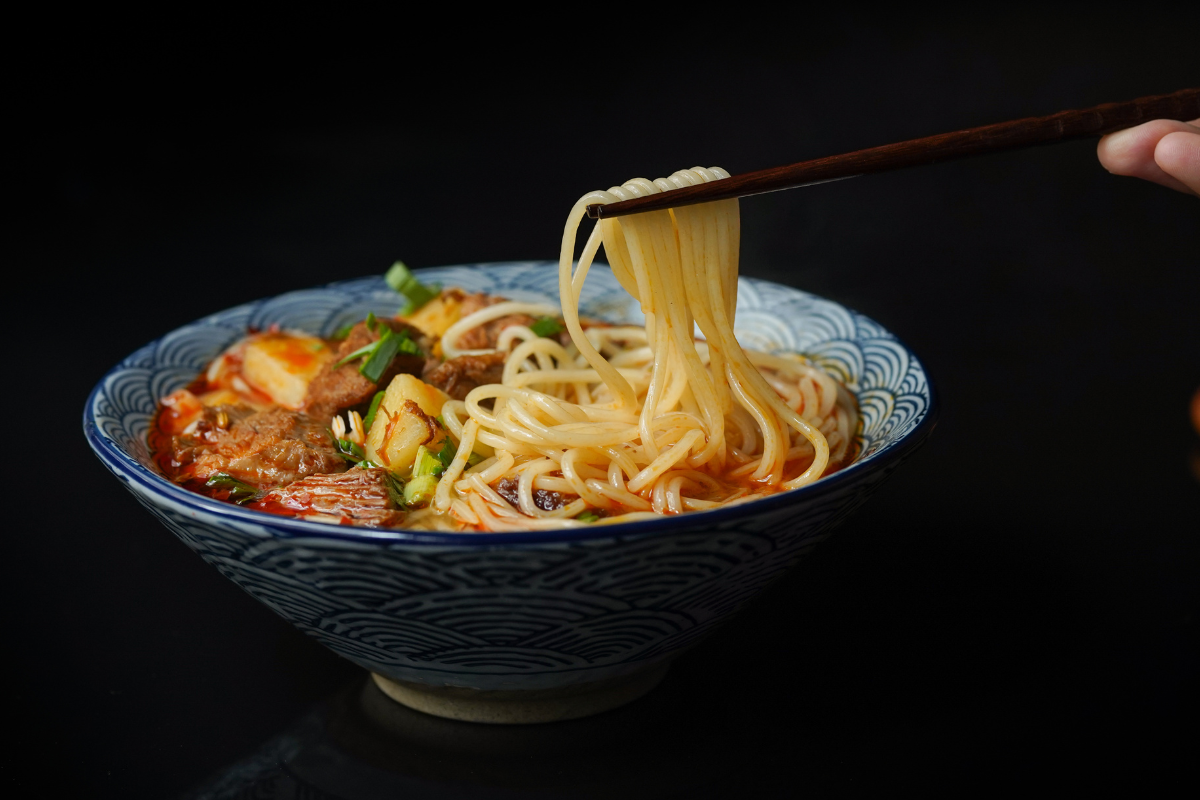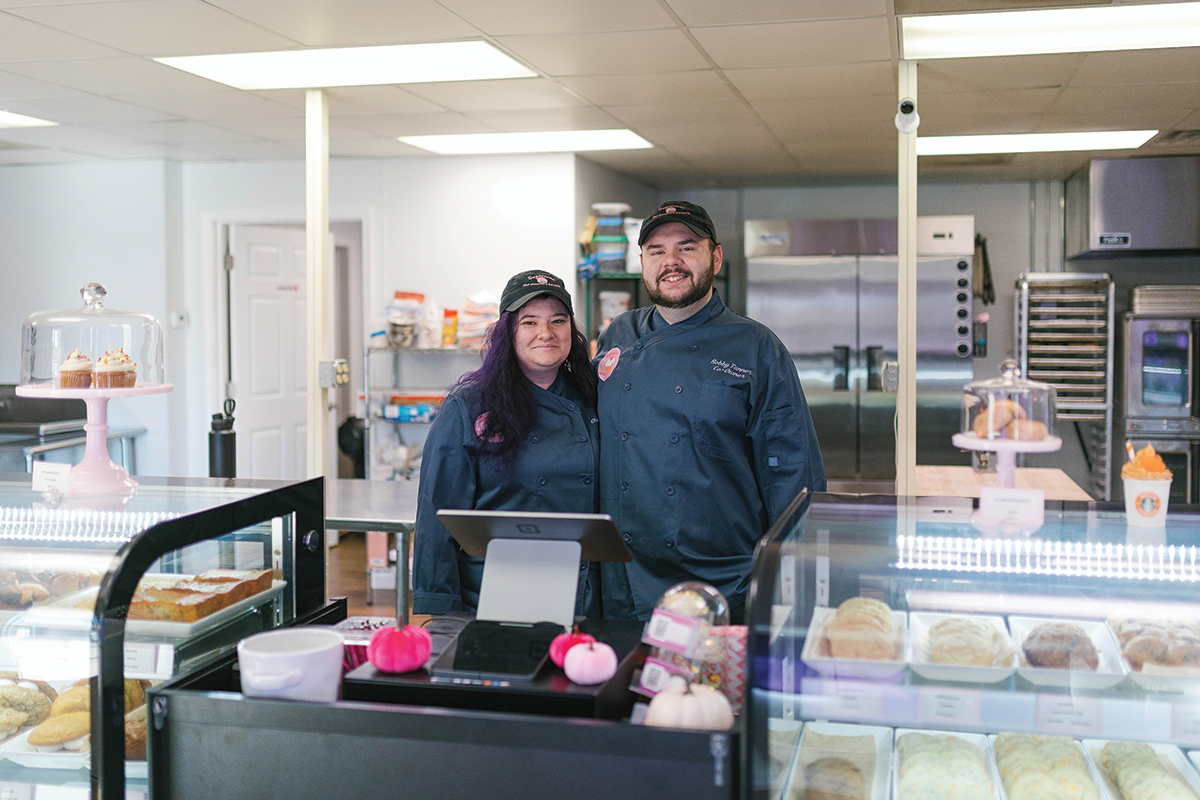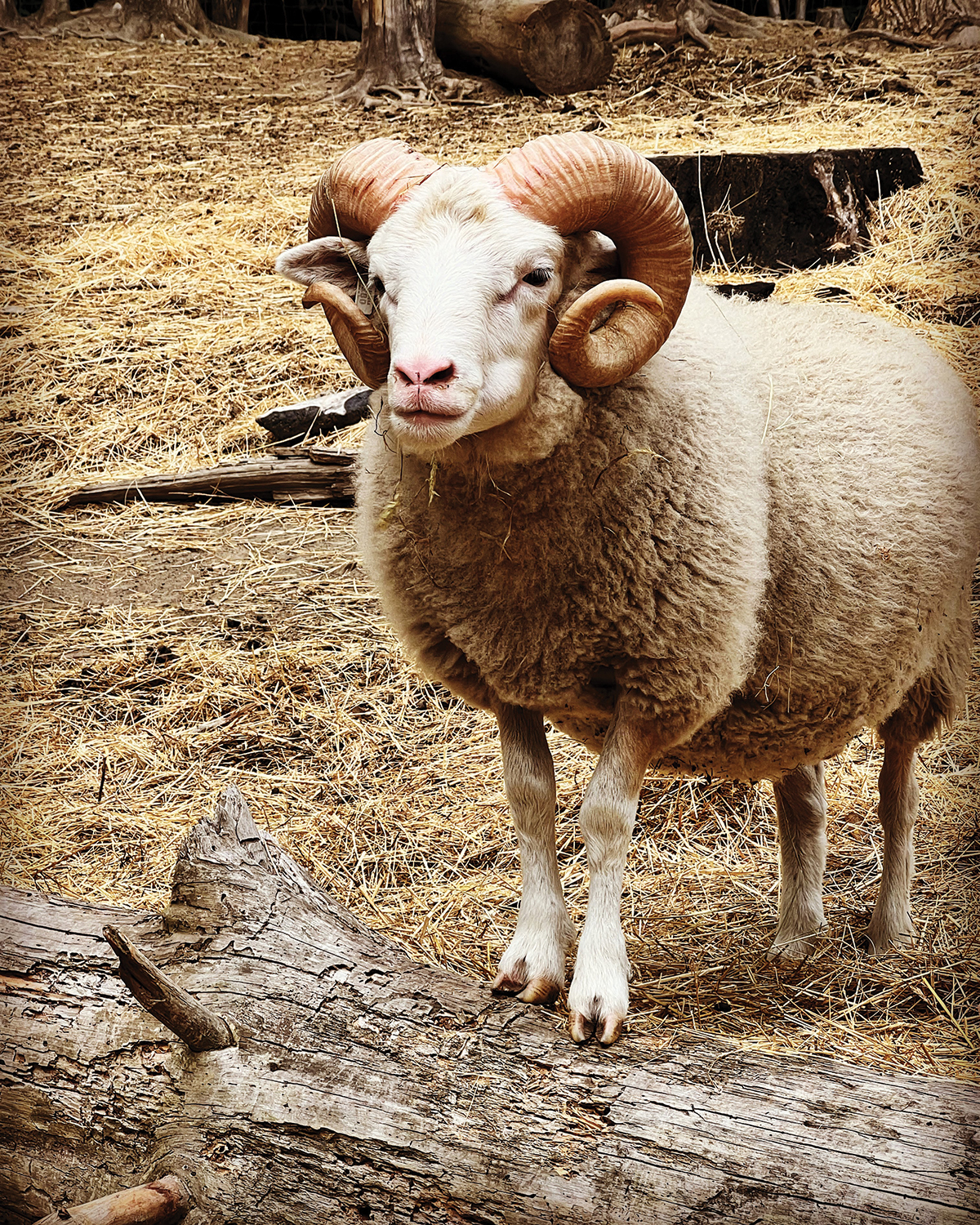Raising fiber animals for love, art, and profit
By: Lee Stevens

Deb Clemens, of Mountaintop Fiber, with Alistair & Pongo.
As the most senior employee at Mountain Top Fibers, Frankie doesn’t punch a clock, but, as Deb Clemens says, he regularly gives the shirt off his back. Frankie is one of 25 angora goats — who, along with a varying number of angora rabbits and two sheep, regularly gives up his mohair for the sake of luxury yarns and rovings.
For Clemens, the animals who produce the fiber are part of the family. She harvests their fur with love and care, and turns it into blended and dyed yarn for fiber artists who knit, crochet, and weave; and into rovings for those who spin and felt.
“Goats are like big dogs,” says Clemens. “Marvelous animals. And angora rabbits are so sweet. For those I sell, I don’t do it without knowing they’re going to a loving home.”
She started down this path 12 years ago, when she learned to spin and wanted her own source of fiber. Frankie, named for his beautiful blue eyes a la Frank Sinatra, was the first angora goat she purchased for that purpose. She and her husband Don were already hobby farmers at their home in upstate New York. In 2009, Deb and Don retired from busy careers, downsized the number and variety of animals they owned, and moved to Alleghany County (in northwest North Carolina, bordering Virginia) to start Mountain Top Farms. While they thought they would just raise a few bunnies and make some yarn from a few pet angora goats, their quiet retirement turned into a thriving enterprise.
Today, in addition to luxury yarns and rovings, Mountain Top offers French, Giant, and Satin angora rabbits for show or breeding stock, and the occasional goat for sale. Clemens’ rabbits attend both fiber-related events and American Rabbit Breeders Association shows. One of her Satin angora rabbits, Clems Gold Digger, was the 2019 National Satin Angora breed winner.
These days, taking care of the animals is a full-time job for Clemens, which leaves little time for spinning. Instead, she sends the raw fiber she shears from her goats, rabbits, and sheep to a mill in Pennsylvania, where they blend and spin it into yarn according to her fiber-blending and yarn-weight specifications. When the yarn comes back from the mill, she pours her creative energies into dying it. This results in custom finished skeins, but is still only half the journey: The skeins then become unique, beautiful tools for fiber artists.
Clemens spearheads the Blue Ridge Fiber Fest, held in Alleghany County in June. She’ll be an exhibitor this month at the Southeastern Animal Fiber Fair (SAFF) in Fletcher, one of the largest expos of its kind.
There, Clemens will sell yarn she’s dyed, yarn she’s had made, roving — and four or five baby rabbits. Frankie the goat will stay behind at the farm, while his self-described “hay wench” is busy hawking his summer coat.
“I’ll bring him back extra treats.”
Southeastern Animal Fiber Fair runs Friday, Oct. 22 through Sunday, Oct. 24 at the Western North Carolina Agricultural Center (1301 Fanning Bridge Road, Fletcher). For a list of workshops, vendors, and more, see saffsite.org. For information on Mountain Top Farms/Mountain Top Fibers, see mountaintopfibers.com.



